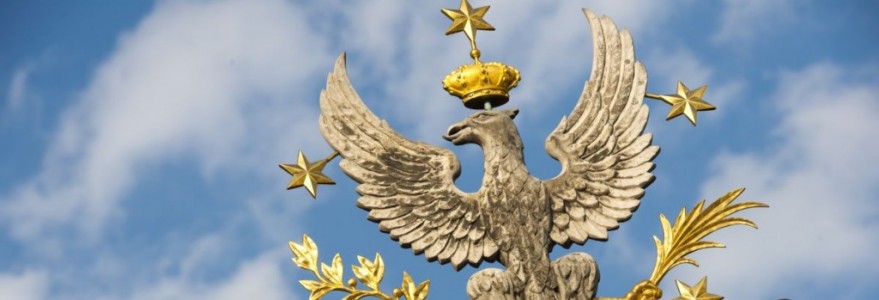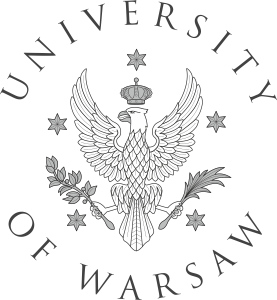An announcement for post-doc position
14 lutego 2020Position of post-doc (adiunkt) (a group of science positions) in the project entitled „Electrochemical systems with bipolar electrodes” financed by National Science Centre, Poland, is open for application. Project leader: prof. dr hab. Krzysztof Maksymiuk. Deadline for applications: 10 May 2020. For more info see >> pdf
Seminar CeNT 31.01.2020
03 lutego 2020The Centre of New Technologies invites to a seminar by
Nuria Selva, PhD, DSc
Institute of Nature Conservation, Polish Academy of Sciences, Cracow
Title: The importance of keeping natural areas road-free
Date: 5th February 2020 (Wednesday)
Time: 1:00 pm
Venue: Centre of New Technologies, Banacha 2C, Lecture Hall 0142 (Ground floor)
Host: Prof. Marta Szulkin
Seminar CeNT 31.01.2020
27 stycznia 2020The Centre of New Technologies invites to a seminar by
Michał Szymański, PhD
Intercollegiate Faculty of Biotechnology of the University of Gdansk and Medical University of Gdańsk
Title: An interplay between DNA replication and repair in human mitochondria
Date: January 31st, 2020 at 12 p.m.
Venue: Centre of New Technologies, Banacha 2C,
Lecture Hall 0142 (Ground floor)
Host: prof. Agnieszka Chacińska
Human mitochondrial DNA (mtDNA) replication is initiated from two different origins of replication, OriH and OriL where mitochondrial RNA polymerase (POLRMT) initiates the synthesis of short RNA primers. These primers are then used by human mitochondrial DNA polymerase γ (Polγ) to initiate DNA synthesis. Once initiated, both H-strand and L-strand synthesis proceed continuously until two new daughter molecules are formed. The RNA primers at the 5′-ends of the nascent strands must be removed by nucleases and replaced by DNA. Failure to remove ribonucleotides from mtDNA may impair ligation and DNA synthesis, causing DNA lesions which during subsequent replication cycles can cause double-strand mtDNA breaks and deletions. Number of nucleases have been implicated in primer removal but they either lack necessary enzymatic activity or their mitochondrial localization is under debate. Thus, the molecular mechanism RNA primer removal and subsequent termination of DNA replication in human mitochondria is not well understood. I will demonstrate that human mitochondrial nuclease, crucial for mitochondrial DNA repair, is efficient in removal of RNA primers and in concert with other mitochondrial factors promotes processing and termination of mtDNA replication.
Seminar CeNT 24.01.2020
20 stycznia 2020The Centre of New Technologies invites to a seminar by
Łukasz Dziewit, Ph.D, D.Sc. and Łukasz Drewniak Ph.D, D.Sc.
Faculty of Biology, University of Warsaw
Title: Metal metabolism in bacteria – from biology to biotechnology
Date: January 24th, 2020 at 12 p.m.
Venue: Centre of New Technologies, Banacha 2C,
Lecture Hall 0142 (Ground floor)
Host: prof. Joanna Trylska
The treatment of metal-contaminated regions (especially those co-contaminated with other toxic substances) remains one of the most expensive environmental challenges currently faced by many countries. It appears that the employment of microorganisms in biotransformation of metals is a good solution to this problem. However, a key step in the waste management technologies is the understanding of the mechanism of various metals resistance, metabolism and transformation. During the seminar we will present the results of our analyses of metal metabolism in various bacteria (including extremophilic strains from Antarctic regions and ancient mines) and how we exploit this knowledge for development of novel environmental biotechnologies. We will show how we combine the classical environmental microbiology with recent advances in genomics and metagenomics for more successful identification of microbial traits that may maximize the benefits of metals bioremediation technologies. Finally, we will present examples of environmental technologies developed in our laboratory and successfully implemented in Poland and abroad.
“BUW for owls”
16 stycznia 2020The University of Warsaw Library prolongs its working hours. “BUW for owls” starts on 20th January. Students who will be preparing for exams now can use the library until 5 am.
Mid-year assessment period at the University of Warsaw begins on 28th January. The University of Warsaw Library meets expectations of students and prolongs its opening hours. Students who prefer burning the midnight oil can take part in “BUW for owls” action. From Monday 20th January to Saturday 1st February, the University of Warsaw Library will be open until the first-morning bus meaning until 5 am.
- On Saturday (January 25th and February 1st) the Library will be open from 9 am to 9 pm, on Sunday (January 26th and February 2nd) the Library will be open from 3 pm to 8 pm.
- After 10 pm Information Desk, Reading Room and open stacks on levels 1, 2 and 3 will be available;
- After 10 pm from Monday to Friday, and on Sunday, the Circulation Desk and the Closed Stacks will be closed.
- The Cloakroom next to Costa Coffee will be open until 5 am.
Only valid library cards holders can take part in “BUW for owls”.
We kindly remind you that during the nights no other drinks but bottled water and no food is allowed in the library.
Source: www.en.uw.edu.pl
PhD position is available within OPUS 14 NCN grant
15 stycznia 2020PhD position is available within OPUS 14 NCN grant „Mechanistic investigations for local thermal oxidation of thin MoS2”. Principal Investigator: dr hab. Robert Szoszkiewicz, prof. ucz. Deadline for applications: 16 February 2020. For more info see >> pdf
Seminar CeNT 17.01.2020
14 stycznia 2020The Centre of New Technologies invites to a seminar by
Witold Konopka, PhD
Nencki Institute of Experimental Biology, Warsaw
Title: microRNA dependent regulation of neuronal plasticity in feeding behavior
Date: January 17th (Friday)
Time: at 12 p.m.
Venue: Centre of New Technologies, Banacha 2C,
Lecture Hall 0142 (Ground floor)
Host: prof. Marta B. Wiśniewska
Eating behavior of animals is controlled by neuronal circuits in the brain, mainly located within the hypothalamus. Hunger is induced by physiological signals e.g. leptin, informing the brain about energy storages in adipose tissue or glucose deficits during hypoglycemia. Additionally, other non-physiological factors may influence when and what do we eat. Those factors include sensory cues of especially palatable food or are entrained by circadian rhythm. Regulation of activity of neurons involved in the control of feeding and metabolism is achieved on many levels of gene expression. We are especially interested in post-transcriptional level of protein translation regulated by microRNAs. These short RNAs serve as a guides for the translation inhibiting complex RISC. We have generated transgenic mice with a mutation of the Dicer gene restricted to forebrain neurons of adult mice. The Dicer nuclease is an essential enzyme in the biogenesis of microRNAs. Mice lacking the Dicer gene in the arcuate nucleus of the hypothalamus developed an obesity phenotype due to increased feeding of regular chow diet. We have also examined how different diets: standard, high fat diet, Western diet and ketogenic diet influence microRNA levels in the blood and preference of mice towards consumed diet.
Information meeting on legalisation of stay
07 stycznia 2020
On 17th January, UW Welcome Point organises two information meetings for students who would like to get information on how to legalise their stay in Poland.
In the programme of the meetings:
- The legalisation of residence in Poland (visa, permanent residence permit)
- Differences between a student visa and a temporary residence permit
- The procedure of application for a residence permit
- Taking up a job during studies
- The legalisation of stay after obtaining a university diploma
- Polish descent and Card of the Pole holders’ rights
Both meetings will take place on 17th January in the Auditorium Maximum building (hall “A”) on the Main Campus.
Registration is available on the Welcome Point website.
Source: www.en.uw.edu.pl
Seminar CeNT 8.01.2020
03 stycznia 2020The Centre of New Technologies invites to a seminar by
Joanna Rutkowska, PhD, DSc
Institute of Environmental Sciences, Jagiellonian University, Cracow
Title: „Family secrets revealed: meta-analytical insights into non-genetic maternal and paternal effects”
Date: 8th January 2020 (Wednesday)
Time: 1:00 pm
Venue: Centre of New Technologies, Banacha 2C,
Lecture Hall 0142 (Ground floor)
Host: Prof. Marta Szulkin
Open call for candidates for rector position at the UW
30 grudnia 2019
The University Council of the University of Warsaw advises the Rector and the Senate of the University of Warsaw and nominates candidates for the Rector position. To ensure transparency and good governance practices, the University Council announces an open call for candidates who are interested in the Rector position and meet the requirements. The deadline for sending applications: 31st January.
Open call for candidates for rector position at the University of Warsaw (pdf)
Applications should be submitted to the University Council by email (university.council@uw.edu.pl) and will be treated confidentially.
The deadline for applications is 31st January 2020.

More information on the University Council of the University of Warsaw
Source: www.en.uw.edu.pl

